The Australian who shot a North Korean propaganda film
- Published
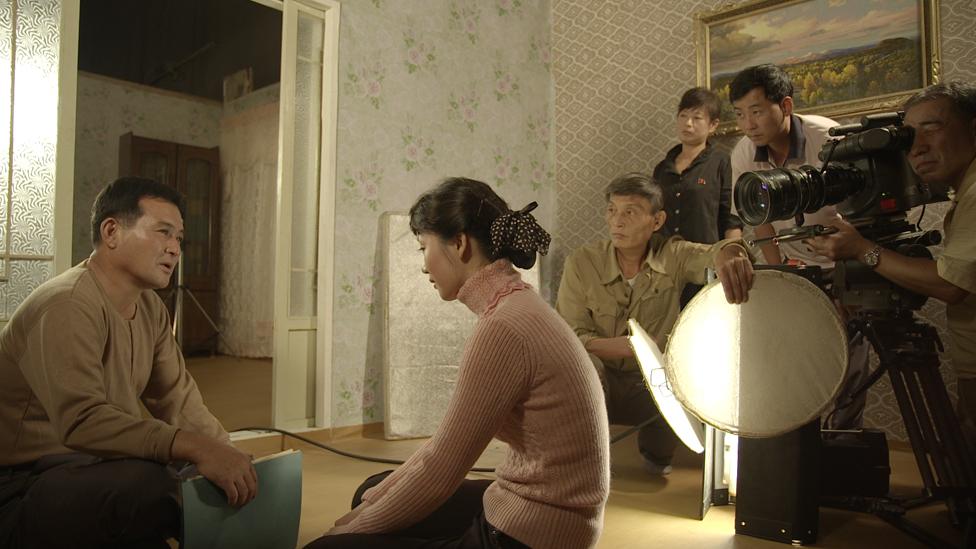
Last September Australian film-maker Anna Broinowski went to South Korea to screen a film she shot partly in North Korea, working alongside Pyongyang's leading film directors. Here she describes her surreal experiences inside the North Korean propaganda machine, the friends she made there, and the reaction of viewers in the South to her movie.
Bicycling along the demilitarised zone (DMZ) in the South Korean town of Paju a few months ago, I was struck by two things:
How beautiful the most heavily militarised border on Earth is, when you forget that its 250km-long swathe of forests is laced with landmines
How three years had passed since I stood on the North Korean side of the wire, looking back at Paju, though it still felt like yesterday
In 2012, six months after Kim Jong-un succeeded his father Kim Jong-il as leader of the Democratic People's Republic of Korea, I shot a film in North Korea.
I was armed with a media visa and the backing of the regime - the only Western documentary-maker granted total access to the country's hidden, but extremely powerful, propaganda film industry.
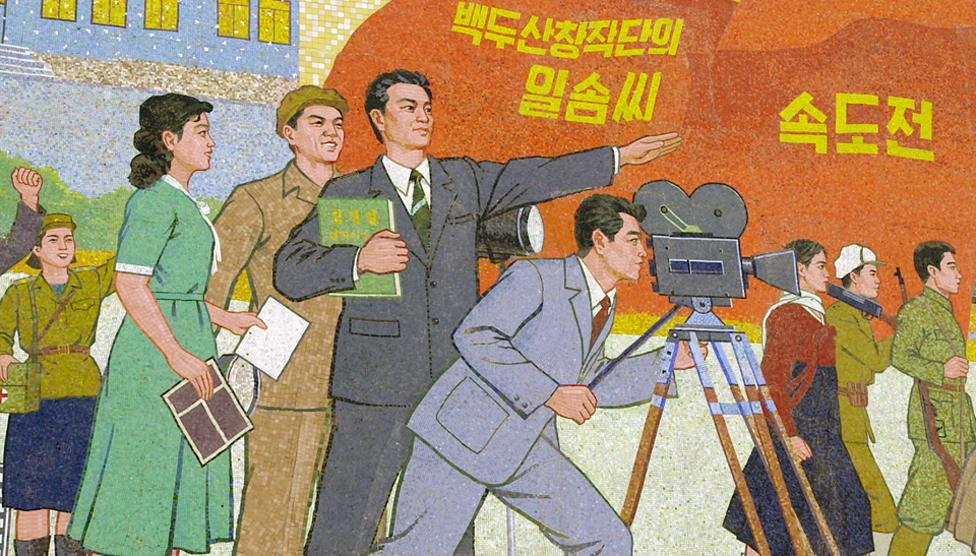
This surreal honour had taken me two years to achieve. It was inspired by a joke birthday present: a copy of Kim Jong-il's 1987 propaganda manifesto, The Cinema and Directing. A journalist friend had picked up the book in Pyongyang while conducting an undercover investigation into North Korea's human rights abuses.
My first response to the gift was ridicule. According to Western newsfeeds, the Dear Leader was a platform-heeled, bouffant-haired dictator, who starved his people, stocked his palaces with Hennessy and "joy division" babes, and repeatedly threatened to nuke America. What could he possibly know about film-making?
But as I scanned Kim's modest tome, with its earnest exhortations to "aim high in creation" and shun "decadent capitalist technology" to make movies that would "smash imperialism" and "advance the socialist cause", my scorn turned to grudging admiration.
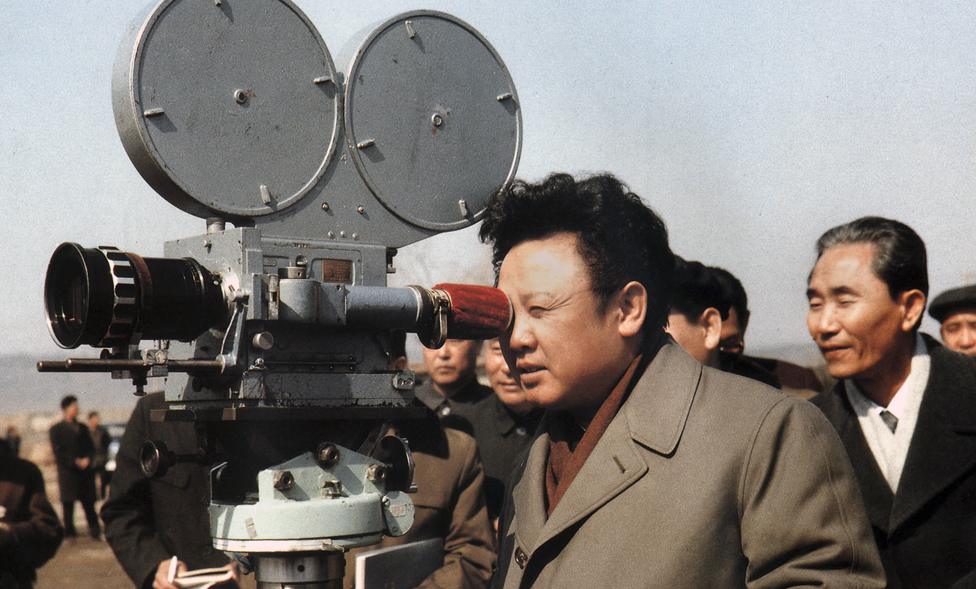
Kim may have been a ruthless dictator, but he was a gifted cineaste. His genius for mass-manipulation was backed by an encyclopaedic knowledge of cinema. According to Shin Sang-ok - the South Korean director Kim allegedly kidnapped in 1978 to elevate North Korean movies to world-class standard - the dictator kept 20,000 foreign films in a secret vault in Pyongyang (Elizabeth Taylor and the Bond franchise were particular favourites), and successfully adapted Hollywood techniques to transform the regime's dour, Soviet-style epics into the multi-genre smorgasbord of rom-coms, noir thrillers and military shoot-em-ups that 24 million North Koreans watch today.
Kim ghost-directed many movies between 1964 and his death in 2011. The god-like image he'd built for himself meant he couldn't take public credit, in case one of them flopped. More than one film-maker who failed to please the Dear Leader found himself in a "re-education camp". The artistic bastard child of Leni Riefenstahl and Steven Spielberg, Kim's tastes were Western, but his end-game was propaganda - his films are as diverse as they are ideologically myopic. The ruddy-cheeked heroines driving his socialist blockbusters - from the 1969 melodrama, Sea of Blood, to the frothy 2006 teen-comedy, Schoolgirl's Diary - are never in any doubt that they live in the greatest country, under the greatest leader, on Earth.

Find out more
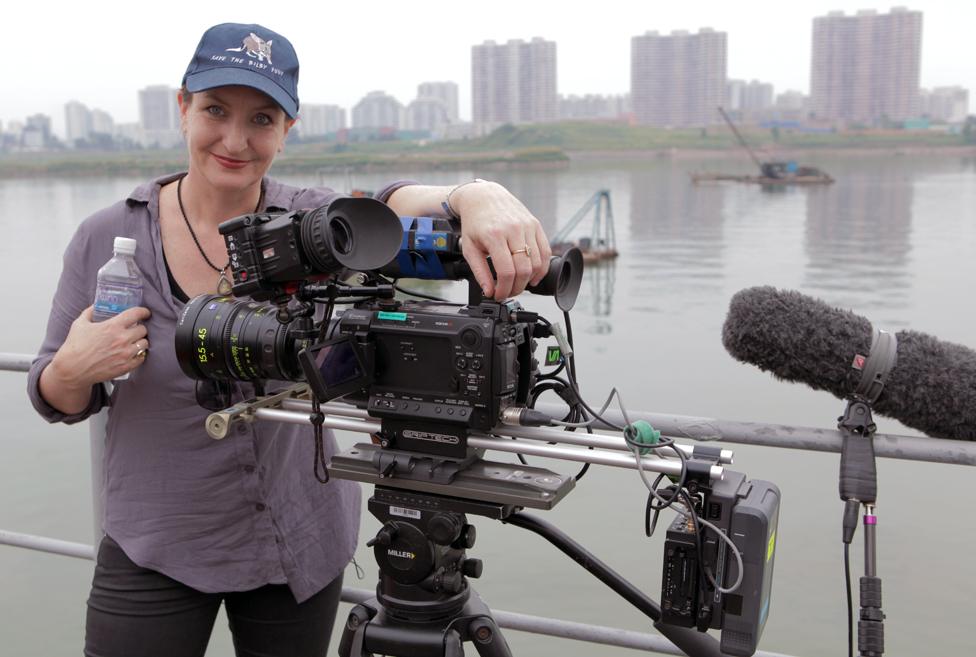
Listen to Making Movies in North Korea, which was originally broadcast on Outlook, by the BBC World Service
The adventures Broinowski shared with North Korean film directors are captured in her 2013 documentary, Aim High in Creation!, external
The things she wasn't allowed to film are documented in her 2015 book, The Director is the Commander, external

Fascinated by Kim's overt hatred of the West and covert love of Hollywood, and intrigued by his counter-intuitive film rules, I enlisted some actors in a bizarre experiment - we would make a propaganda film in Kim Jong-il's style. I knew we needed a capitalist enemy (the multinational company planning to drill for gas near my inner-city Sydney home was perfect), a working-class heroine, and an army of downtrodden villagers to rise up in glorious unison against the dastardly frackers.
What I didn't know was that thanks to some timely support from Beijing-based British film-maker and North Korea-tour operator Nick Bonner, I would end up making my movie in collaboration with Kim Jong-il's top film-makers.
Passionate, generous, frank, intelligent, proud and extremely curious about the world I'd come from, the North Korean directors, actors, musicians, stunt fighters, tour guides and artists I met contradicted the dehumanising, simplistic view we're often fed of North Koreans - a view that typically depicts them as brainwashed or fearful colluders, conflating them with the brutal regime under which, through no fault of their own, they happen to live.
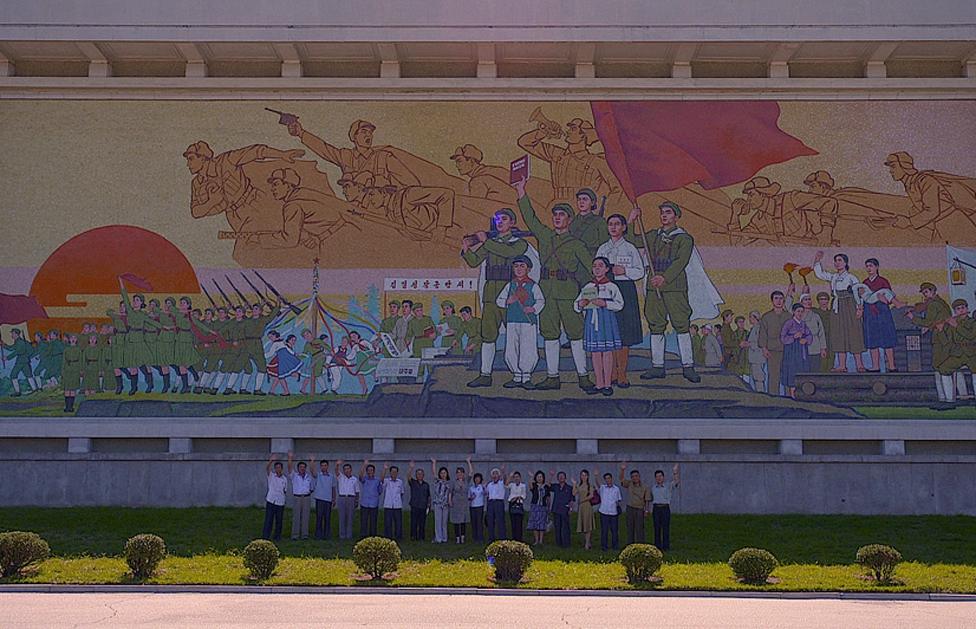
Within two hours of arriving in Pyongyang - an eerily serene city, with pastel-coloured buildings, colour-co-ordinated pedestrians, hand-painted murals and a total absence of advertising - I found myself at a barbecue with my new North Korean friends. We were sitting in a paddock ringed by fake Swiss chalets and goats - the "European" part of four massive outdoor film sets Kim built in the 1970s so his film-makers would not need to travel - or, one assumes, defect.
In their matching floral barbecue aprons, the film-makers had an old-world innocence, like extras in an MGM musical - which is perhaps understandable, in a culture that has been completely sealed off from the internet, reality TV, crack cocaine, violent gaming, selfies, rock, pop, fast food, 3D, Twitter, viral marketing and every other consumerist fad that has distracted the free world since 1945.
Less expected was the irreverent humour of my North Korean colleagues. After many alcohol-fuelled toasts to the "future friendship" between our two nations, Pyongyang's top action director ripped off his shirt and leapt to his feet, bellowing a song of comradely love with tears in his eyes. A popular rom-com writer then brought the house down with an anti-Soviet joke that involved the South Korean president, David Beckham and George W Bush being boiled alive by cannibals.
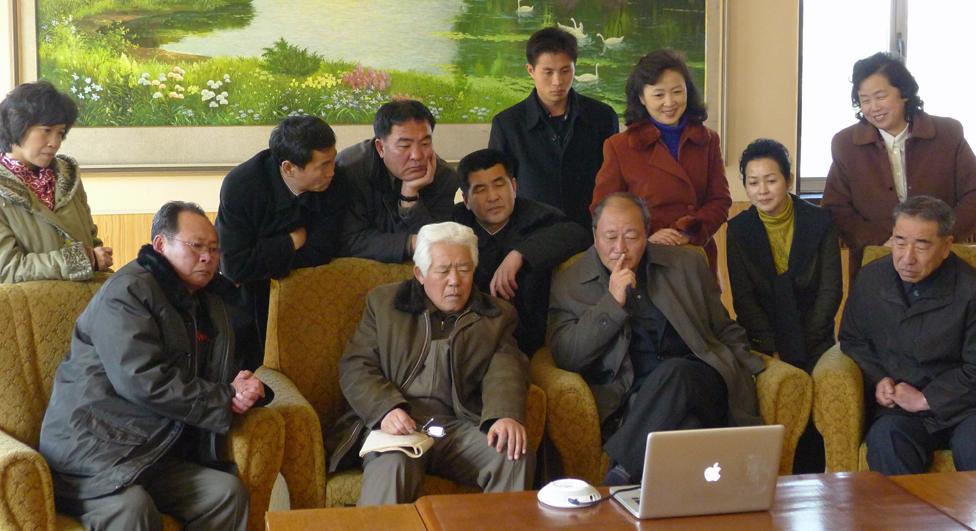
North Korean film-makers view Anna's short film
I was convinced the enthusiastic singing and jokey camaraderie had been staged, Truman-Show-style, for my benefit. But a week later, picnicking with my North Korean minders on Moran Hill, a park in central Pyongyang, I peered over the hedges to discover 15 people of all ages dancing joyfully to a folk tune, blasted by a grandmother on a 1980s boom box. There is no way these people could have known we were there.
I did have a few rare glimpses of North Korea's dark side during my 24 days in the country, despite my minders' determination to keep my glasses rose-tinted. Installed on the "foreigners' floor" at the top of the Yangakkdo hotel (a 90s-era skyscraper with a casino, karaoke bar, massage parlour, snooker room and bowling alley mysteriously concealed in its basement), I was sure my room was bugged. One night at 2am, during a marathon binge on propaganda films that had been thoughtfully curated for me by the state agency, Korfilm, I couldn't help laughing. The randomness with which North Korean actors burst into songs about the Dear Leader - whether they are on a battlefield, in jail, or shovelling manure in a field - is absurd, and I was fed up with the reverence with which I was expected to greet every mention of the Kims. The phone rang immediately. My minder's irritation was palpable: "Anna, please watch the films."
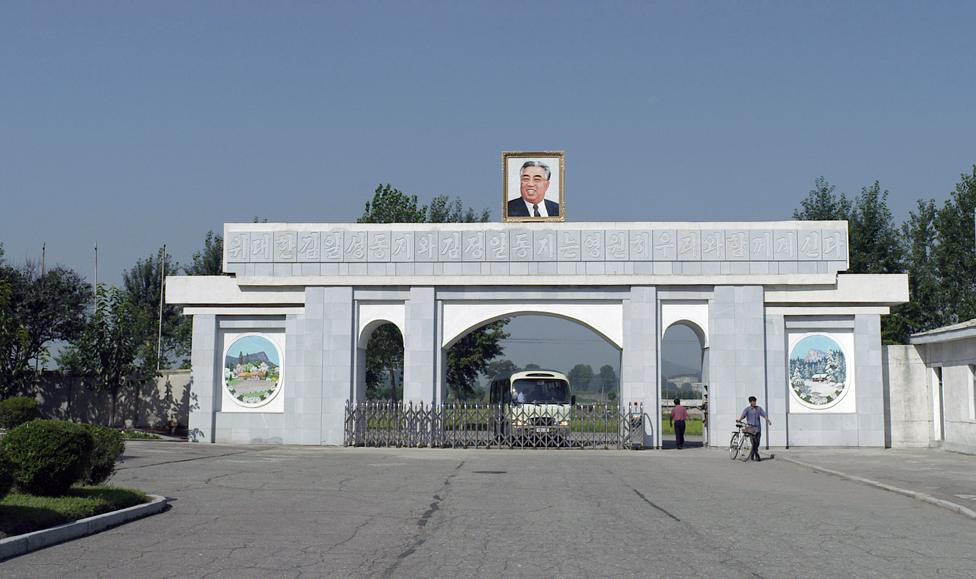
A portrait of Kim Il-sung watches over Pyongyang film studios
In Pyongyang's pristine streets, I was never allowed to film the ubiquitous statues of the Kims at any angle other than front-on (tourists who have disobeyed this directive have been sent back to China) and while most passers-by I encountered in our tightly controlled excursions seemed fairly well-nourished - the people living in Pyongyang are, by all reports, the lucky ones - I once saw two dehydrated puppies strung by their necks to a bicycle. They did not look like pets.
True to its word, Korfilm did allow my camera inside almost every facet of the film industry. From a military thriller being shot on the captured American spy ship the USS Pueblo to the April 25th Military Film Studio and Pyongyang Film Studio - with its wall chart commemorating the 11,870 times Kim visited film sets to give "on the spot guidance" - to a state-of-the-art concert hall, where a black-tie orchestra performed a melancholy song composed by People's Artist Pei Young Sam for my documentary.
A visit to a film set in North Korea
I was, however, banned from the telecine labs. Despite my reassurance that celluloid is now as cool as vinyl in the digital West, my minders feared that shots of spooling film stock would make North Korean film-makers, who still shoot on 35mm German Arri cameras with non-sync sound, look primitive.
North Korea's notorious "million-man army" was also off limits. When a cavalcade of rusting 1950s-era jeeps packed with bewildered teenagers in plastic-buttoned uniforms thundered past a traffic lady in Pyongyang one afternoon, my minder slammed our viewfinder shut with his fist. The customs official who later examined my footage complained there were "too many soldiers" in my exteriors. But as my minder reasonably pointed out, there are "soldiers everywhere" in Pyongyang, and some cannot be avoided.
The official was also unhappy that one of the directors spoke "too positively" of The Godfather, and didn't like the way that Kim's face, beaming on a badge pinned to an actress's lapel, had been obscured by my radio-mic wire. I assured him we'd paint it out in post-production, and left the country with my footage intact.
Three years later, the images I shot in North Korea are still clear in my mind:
My gracious 70-year-old mentor, Mr Pak, hobbling over a barbed-wire-strewn wasteland after curfew in his neatly pressed chinos, to the lightless shack he called home
My 22-year-old interpreter in her tight white denim - eyes wide with delight as she grabbed my Kim Kardashian perfume, marvelling that Westerners use a cologne "named after our Dear Leader"
The blonde, blue-eyed Dresnok boys - staring at me with undisguised hatred on the USS Pueblo, where they were playing "Yankee bastards" in my cameo scene as an "evil American wife"
The sons of Joe Dresnok - a US GI who wandered over the DMZ in the 1960s hoping to get to Russia and was instead typecast by Kim Jong-il as North Korea's number one movie villain - the Dresnok boys are North Korean born and bred. I kept fluffing my lines, which is a grave mistake in North Korea - film stock is precious, and actors get 1.5 takes per scene. When I got the sack, the Dresnoks couldn't hide their joy.
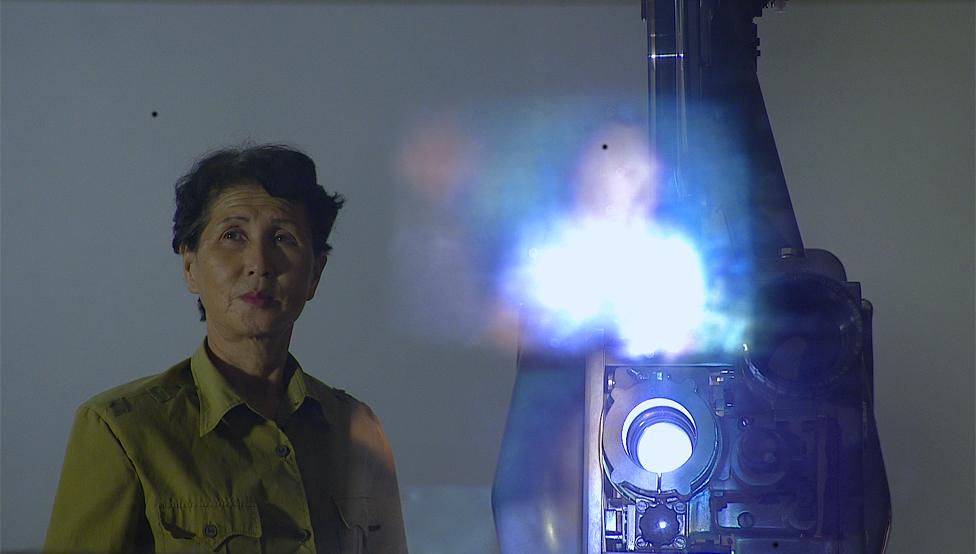
In September 2015, the 70th anniversary of the division of Korea, my documentary Aim High in Creation!, external screened in a special programme at the DMZ docs festival in Paju.
South Koreans are prevented by law from watching North Korean films, so the snippets of North Korean life captured in my film and in a handful of other foreign documentaries shown at the festival, represented the full extent to which audiences could cross the "mental DMZ" that still exists, I am told, inside the heart of every Korean.
The warmth with which the South Koreans greeted the North Koreans in Aim High!, and the astonishment with which they responded to its images of ordinary people going about their lives - images which the South Korean government would normally never let them see - was extraordinary.
I left Paju struck by the tragedy of this divided country, in which politicians on both sides have a vested interest in keeping people ignorant about their cousins on the other side of the wire.
Aim High! is not a perfect film - its combination of a Kim Jong-il propaganda short within a "straight" anti-gas documentary is undeniably odd. But having now shown it in South Korea, I am glad we made it. In a media environment that seems intent on portraying North Koreans as nothing more than the sub-human puppets of an unremittingly evil regime, the people we meet in Aim High! are three-dimensional, likeable and human.
Our similarities outweigh our differences.
As my mentor, Mr Pak, said to me on our last night together: "Film-makers are family."

More from the Magazine
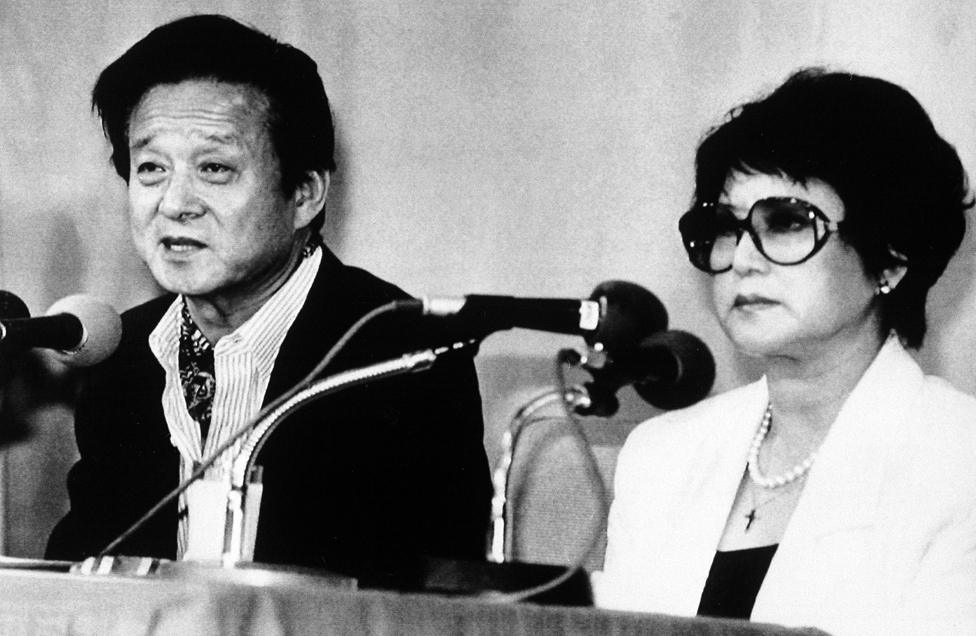
It sounds more far-fetched than anything a film-maker could invent - the story of how a director and a leading actress were kidnapped by North Korea and forced to make films for the state's movie-mad leader, Kim Jong-il.

Photographs, unless otherwise indicated, provided by Anna Broinowski
Subscribe to the BBC News Magazine's email newsletter to get articles sent to your inbox.